Elvis & Kresse turns decommissioned fire hoses into sustainable fashion accessories, and donates half of its profits to support renewable energy and women’s empowerment projects, as well as firefighters in need.
The social enterprise’s products, which include bags, wallets, belts, notebooks or laptop cases, are designed with a zero waste ethos in mind, meaning that their production processes leave no scraps behind, involve only upcycled materials, and use packaging made out of reclaimed fabric.
Rescue, transform and donate
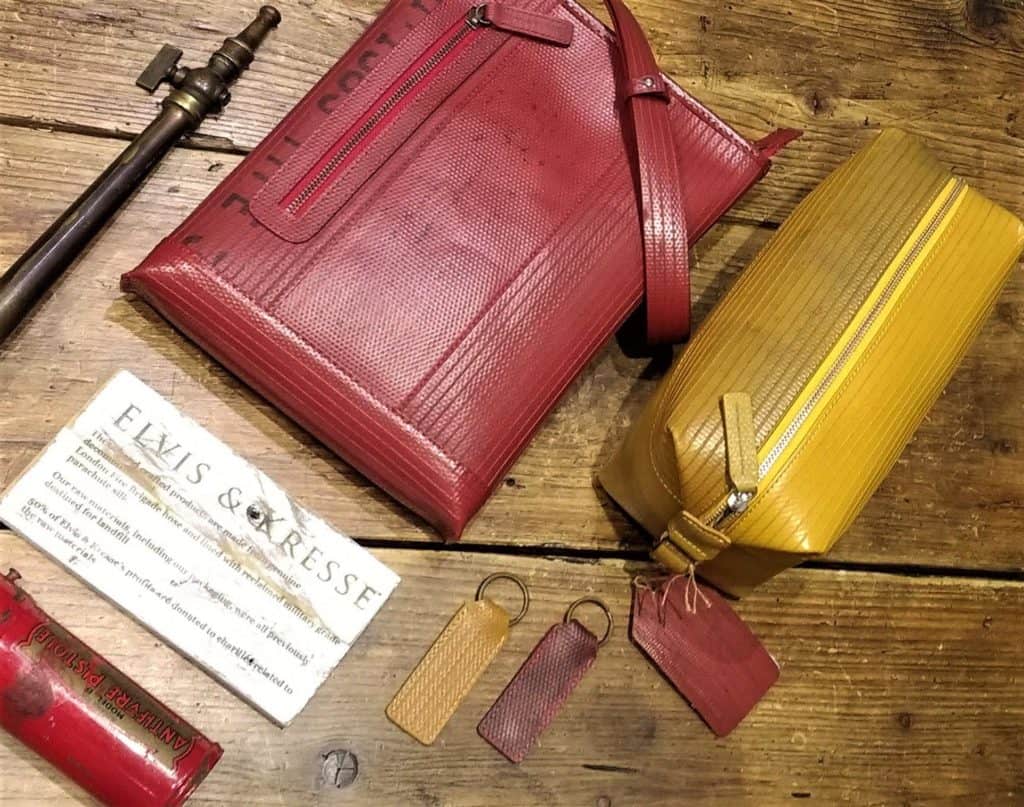
Fire hoses are taken out of service either once they have reached their approved health and safety life span of 25 years, or earlier if they are damaged beyond repair.
Through a chance encounter in 2005, Elvis & Kresse founders James Henrit (aka ‘Elvis’) and Kresse Wesling realized that every year, between 3 to 10 tons of fire hoses are destined for the landfill in London.
They also recognized the extractive, exploitative and destructive nature of the fashion industry, which emits more carbon than international flights and maritime shipping combined, and is the second largest polluter after oil.
So, despite no previous experience in fashion, the former design consultant and venture capitalist duo spent two years prototyping what products reclaimed fire hoses could be repurposed into, and created conscious sartorial brand Elvis & Kresse.
“From the first day we had a unique DNA: rescue, transform, donate.”
What is a (reclaimed) fire hose?
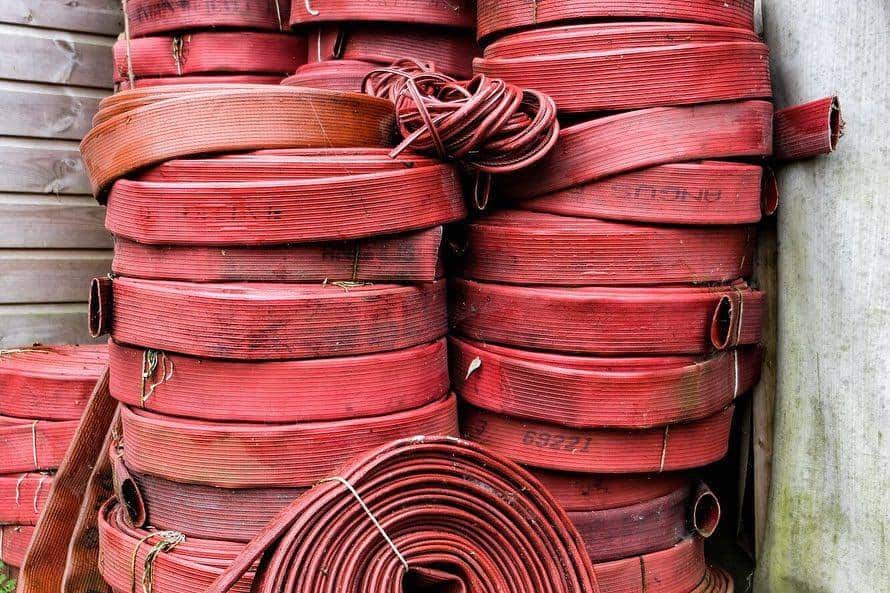
“We travelled to see the fire hose manufacturer to understand how the product is made, why it has a health and safety life span, and what else may cause it to fail. We met fire brigades across the country to understand how they work with the material, the extreme situations it is designed to survive, and the workload it has to bear.”
The fire hoses rescued from the London Fire Brigade contain a woven nylon core that keeps the hose from bulging or bursting under water pressure, and a vulcanized nitrile rubber jacket to ensure it’s heat-resistant and waterproof – these materials are the reasons why Elvis & Kresse products are renowned for their lifetime durability.
They can’t be shredded, melted or made into new hoses, which is what inspired Elvis & Kresse to wash, slice and sew them into trendy fashion accessories, and in the process, challenge people’s perception of waste.
Redefining fashion, luxury and waste
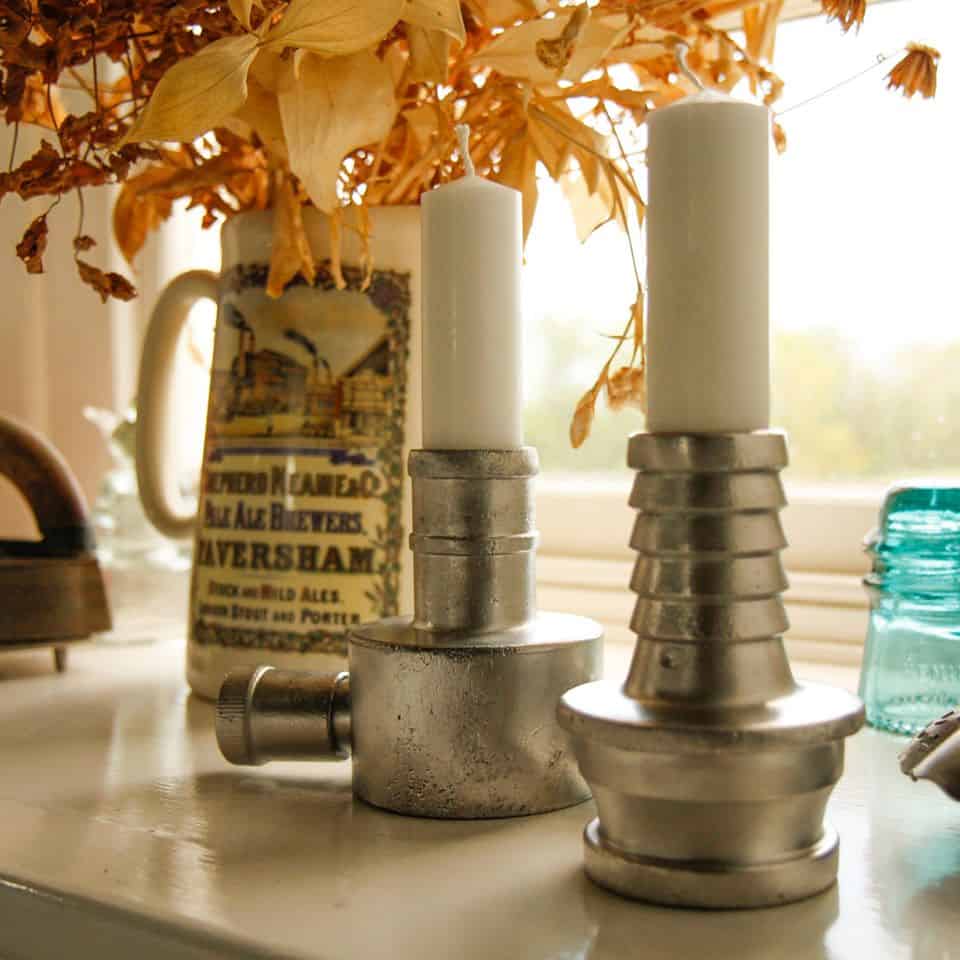
At the end of the hose you will also find a reusable coupling made from cast aluminium that’s rarely collected as it can be refitted to a new hose once the old one is taken out of service. If these metal ends are damaged beyond repair, Elvis & Kresse would repurpose them as candle holders, giving them a second life with greater value than simply recycling them as scrap metal.
“We researched the entire life cycle of the hose, from birth to death. We also spoke with academics to understand the base materials that make up the products, and did a lot of research around where and how these materials are used beyond the fire service. We became hose and hose-waste experts.”
When asked what sets Elvis & Kresse apart in a world defined by consumerism, fast fashion and increasing greenwashing practices, Wesling explained their definition of sustainability: “For us, if it doesn’t make the world better for other people’s grandchildren, then it isn’t sustainable. This is why we don’t follow ‘seasons’ or trends, and instead focus on utilitarian classics.”
Supporting firefighters in need
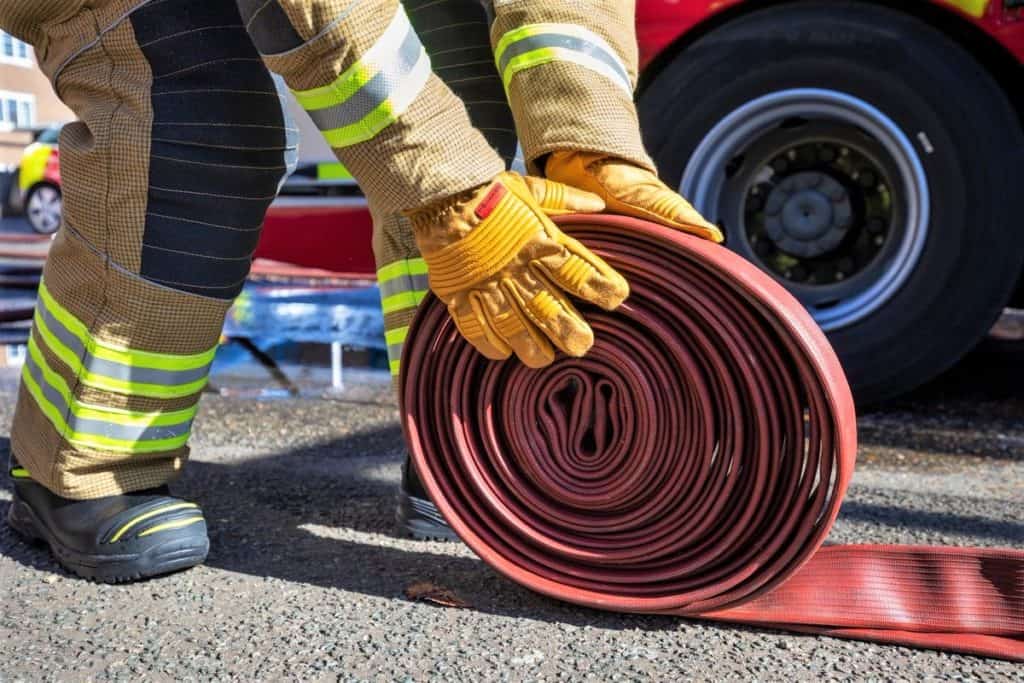
Over the last 13 years, Elvis & Kresse has saved 170 tons of used fire hoses from going to waste, and the proceeds from its upcycled fire hose products helped provide rehabilitation and support to active and retired fire service personnel with physical and mental health issues through The Fire Fighters Charity.
“We think it is important to reinvest half of our profits in the business but why shouldn’t we also reinvest half in our community of stakeholders.”
Based on cost estimates of the services provided by The Fire Fighters Charity, Elvis & Kresse’s donation in 2019 alone would cover 2000 exercise therapy sessions, 500 hydrotherapy sessions, 400 physio sessions, 400 psychological support sessions, enough funding for 100 days of the Services Access Line, and 118 food vouchers for firefighters experiencing economic hardship.
Upcycling leather offcuts into household accessories
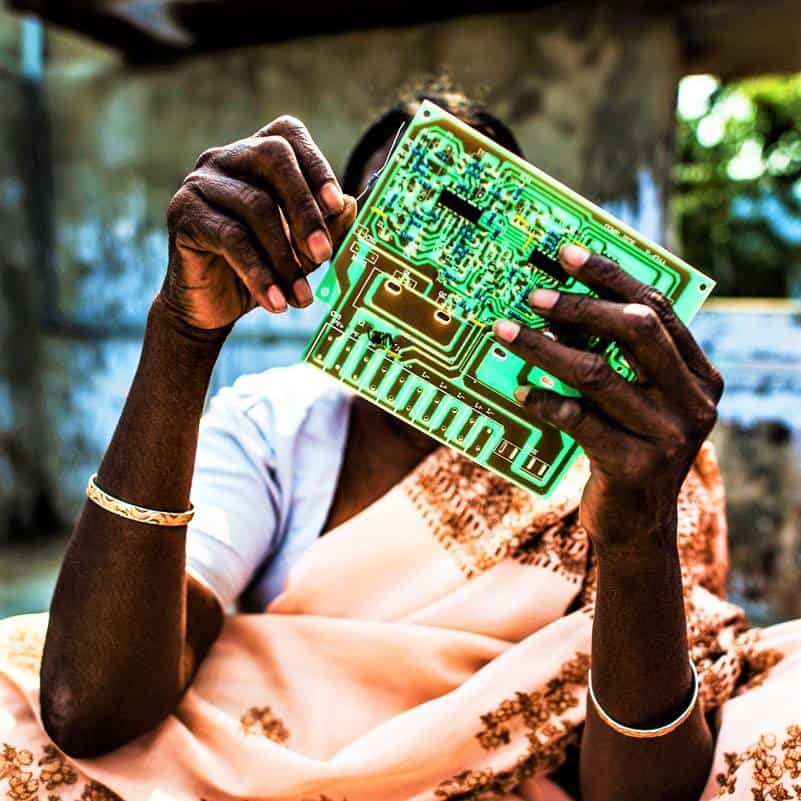
The labor-intensive nature of the production process meant that focusing on reclaimed fire hoses solely would have not allowed Elvis & Kresse to reach a mass market. So in 2010, the social venture announced an ambitious plan to tackle the world’s 800,000 tons of leather offcuts that get discarded in landfills or incinerated every year.
In 2017, Elvis & Kresse established a five-year partnership with the Burberry Foundation to upcycle the designer label’s 120 tons of leather waste into products designed and sold by the social enterprise. Elvis & Kresse designed modular cuts that could be reused as rugs, chairs or luggage, while creating a bare minimum of material wastage.
Sales from its leather project funds the training of rural women as solar engineers at Barefoot College, a social enterprise that aims to improve access to education, healthcare and sanitation in vulnerable communities, and further women’s empowerment and electrification through solar energy.
Championing the circular economy
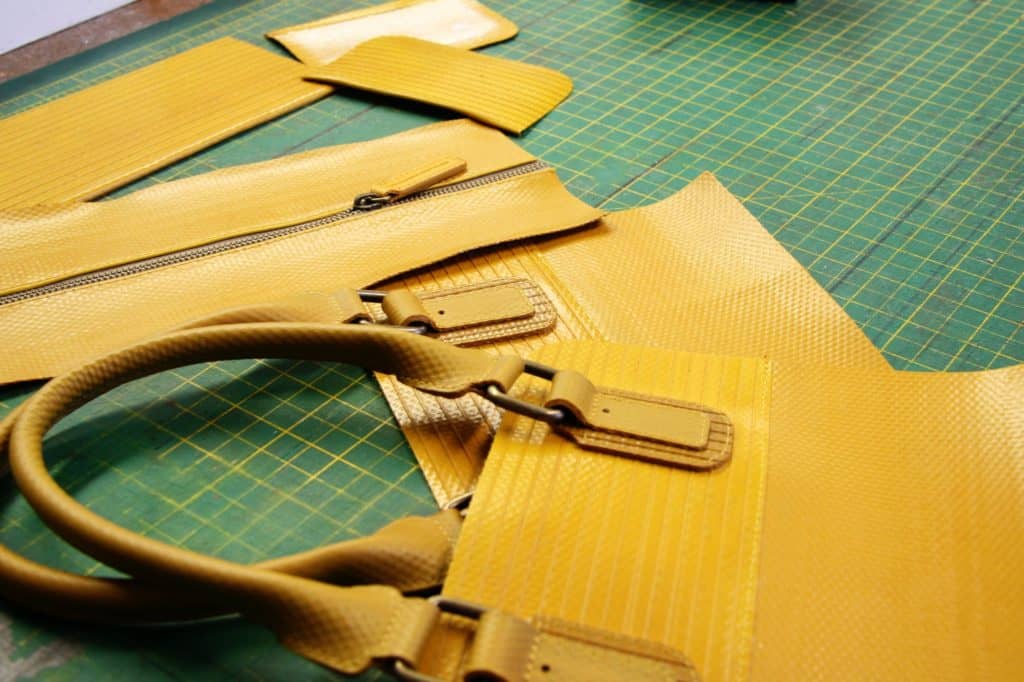
While their signature materials are fire hoses and leather, Elvis & Kresse also rescues failed parachute silk, reclaimed coffee and tea sacks, waste printing blankets and used auction banners.
They are currently working on an open sourced design for a small-scale, renewable energy powered forge to hack the aluminium recycling process, and mitigate the environmental impact of the 2 billion aluminum cans that don’t get recycled every year in the UK.
Their ultimate mission is to address the 100 million tons of waste that end up in British landfills every year.
“If we want to have a circular economy which is the moonshot for the material world, we have to get away from this take, make and waste system. We have to get involved in perpetual recycling – everything has to be in use at all times.”
As a founding B Corp, Elvis & Kresse is also committed to becoming carbon neutral by 2030, though they consider their transport and shipping footprint as the biggest challenge in greening their operations.
Top tips for aspiring social entrepreneurs
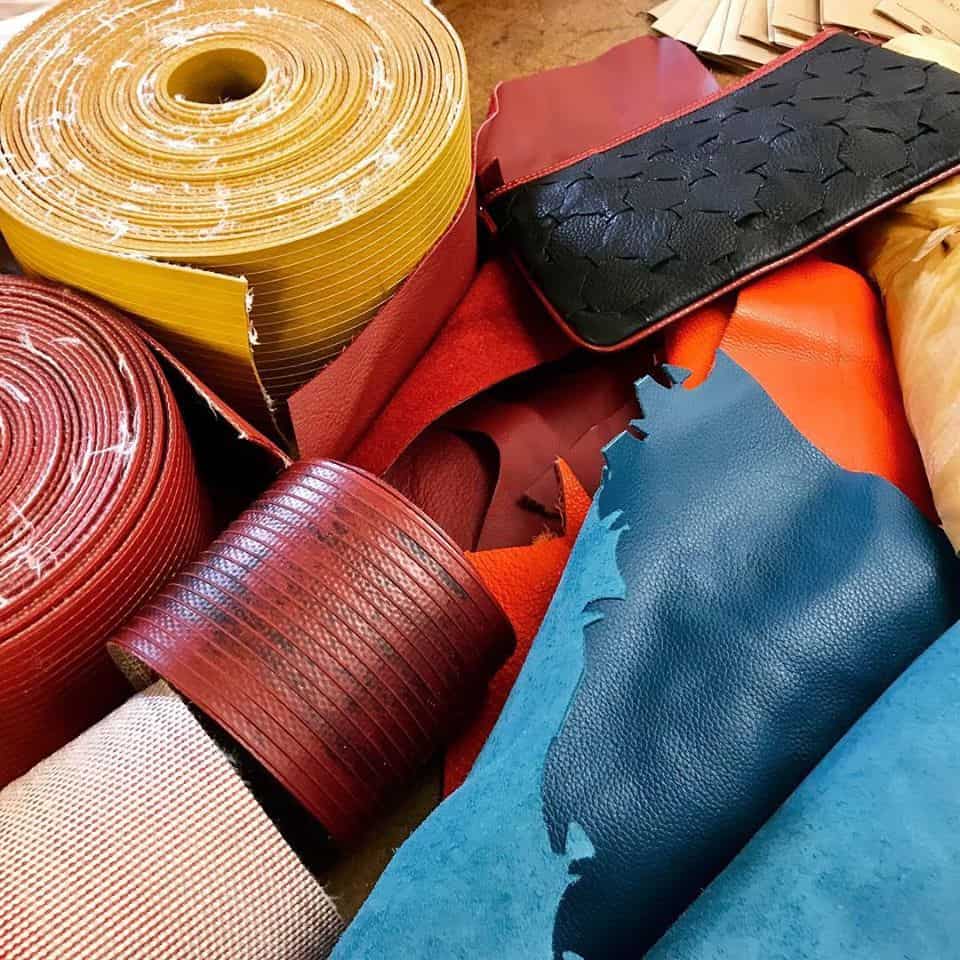
Wesling finishes off our interview with practical suggestions on how to balance profit with purpose, and achieve long-lasting social and environmental impact:
- Think backwards. Don’t start with an idea, start with a problem. We face unprecedented environmental challenges: we have lost 30 percent of our bees, and by 2050 there could be more plastic than fish in the oceans, much of it too small to see or capture. If you want to run a truly rewarding, impact-driven business, choose one of these challenges.
- Make sure you understand your problem truly, deeply and systematically. This means knowing what it is, why it exists, how big it is, what or who causes it, where it is and what makes it worse.
- Design a solution for the whole problem. Be ambitious. Ensure that your solution could be scaled up to eradicate the problem.
- Be entirely sustainable. This encompasses environmental, social and financial aspects, the latter because positive cashflow means you won’t have to compromise on your solution. Just because you are a purpose-driven social enterprise – that exists to do good – doesn’t mean you will be immune to wider economic issues. We encountered virtually every possible challenge in 2011 to 2012, and only survived because we reacted quickly, moved to a new location (in a new county!) and set up our very own manufacturing during the 10 most difficult and exciting days we have ever faced.
- If a business decision is bad for other people’s grandchildren, don’t make it. Period. This is something we talk through with Elvis every time. The world doesn’t have time for exploitative, destructive businesses. Those days are gone.









